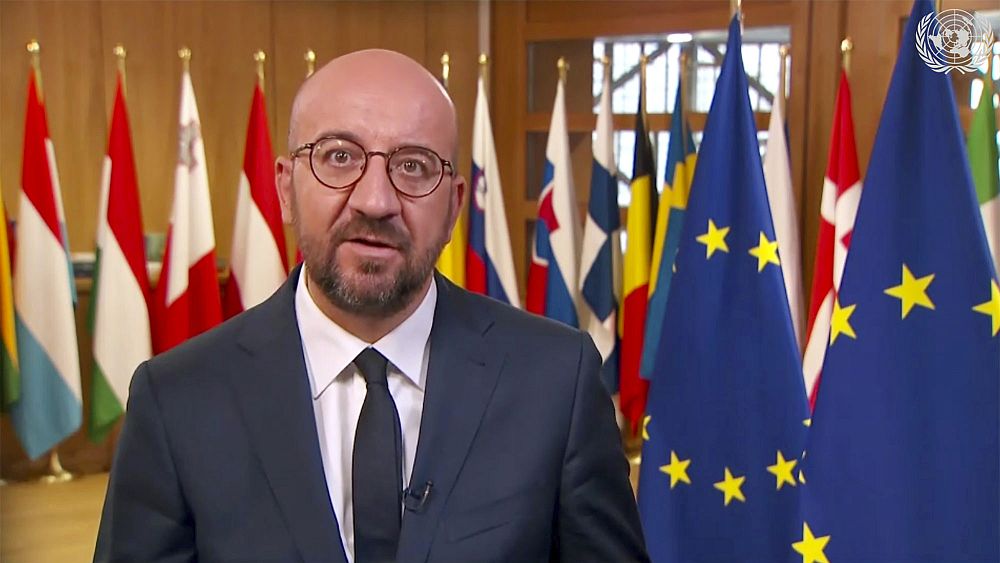Britain”s plan to flout international law over Northern Ireland will not break the Brexit deadlock with the European Union “more than ever” determined to defend the rules-based international order, European Council President Charles Michel warned on Friday,
In a thinly-veiled reference to the UK, Michel told the United Nations’ General Assembly via video link that “respect for treaties, a basic principle of international law, comes to be considered optional even by those who, until recently, were its historical guarantors. All this in the name of partisan interests”.
“More than ever, the European Union is defending the rules-based international order and cooperation based on universal values. The European Union wants to be stronger, more autonomous, and firmer, to defend a fairer world.
“We are now developing these values and this open model with greater awareness of our strength, with more realism, and perhaps less naivety. We have faith in the virtues of free and open economies, never in protectionism. But access to our large market — the second-largest economic zone in the world, and the first in terms of international trade — will no longer be sold off. From now on, we will better enforce the level playing field, in a market open to those who respect its standards. Whether they leave our Union or want to move closer to it,” he added.
British Prime Minister Boris Johnson introduced a draft bill earlier this month, which if approved by parliament, would allow the UK to override commitments it made as part of the Withdrawal Agreement signed with the EU.
Johnson argued that his controversial Internal Market bill would protect the Good Friday Agreement, a 1998 peace deal which ended decades of bloody violence in Northern Ireland.
But the EU and the US have both condemned the UK for the bill, warning that it would endanger the fragile peace in Northern Ireland.
Brussels has threatened legal action against London if it proceeds with the bill while members of the US Congress have stressed that Washington would not strike a trade deal with the UK if it goes ahead.
The Irish issue has been the thorniest for Brexit negotiators as all agree that a border infrastructure between Northern Ireland — a British province — and the Republic — an EU member state — could trigger violence.
The Withdrawal Agreement, which was renegotiated by Johnson before it was approved by parliamentarians earlier this year, plans for Northern Ireland to remain in the EU’s customs union for certain goods. The UK argues this will create a de-facto border between its province and the rest of the Union in the Irish Sea.
Brexit negotiations have been deadlocked for months with both sides blaming the other for the lack of progress. Beyond Northern Ireland, fishing rights and open and fair competition have been particularly contentious.
During his address to the UN, Michel also touched on other geopolitical issues, stressing once more than the bloc plans to “become stronger and strategically autonomous”.
He reiterated that Brussels considers the results of the August 9 Belarusian presidential election to have been “falsified” and that it is demanding “an independent and credible investigation” into the assassination attempt against Kremlin critic Alexei Navalny.
He also once more highlighted the EU’s continued support for the Iran Nuclear Deal despite Washington’s withdrawal and attempts to impose new sanctions on Tehran. On China, the Council President said that the EU “will not stop promoting respect for universal human rights” including those of minorities and in Hong Kong.








